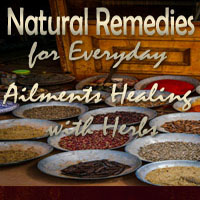


A Holistic Approach To A Fulfilling Life

Overall well-being encompasses the physical, mental, emotional, and social aspects of our lives, providing a comprehensive view of our quality of life. It's about finding balance and harmony in all areas, resulting in a more fulfilling and content existence. In this article, we'll delve into the concept of overall well-being, its key components, and how to nurture it in our daily lives.
Understanding Overall Well-Being
Overall well-being is more than just the absence of illness; it's the presence of positive physical, mental, and emotional states that enable individuals to thrive and live life to its fullest. It's about experiencing joy, fulfillment, and satisfaction in various facets of life.
Key Components Of Overall Well-Being
Physical Health: A fundamental aspect of overall well-being, physical health encompasses nutrition, exercise, sleep, and the management of chronic conditions. Taking care of your body through regular physical activity and a balanced diet is essential for optimal well-being.
Mental Health: Mental well-being involves emotional stability, resilience, and a positive mindset. It's the ability to cope with stress, maintain healthy relationships, and find purpose and meaning in life.
Emotional Health: Emotional well-being relates to understanding and managing your emotions. It involves recognizing and expressing feelings, as well as developing strategies to handle emotional challenges.
Social Connections: Building and maintaining meaningful relationships with friends, family, and the community is a key component of overall well-being. A strong support system contributes to happiness and provides a safety net during difficult times.
Financial Stability: Financial well-being is the ability to manage and plan for financial security, reducing stress and enabling individuals to focus on other aspects of life.
Career And Personal Development: A fulfilling career and personal growth contribute to overall well-being. Setting and achieving personal and professional goals can enhance one's sense of purpose and satisfaction.
Nurturing Overall Well-Being
Balanced Lifestyle: Strive for a balanced lifestyle by making time for work, relaxation, and leisure activities. Allocate time for exercise, hobbies, and activities that bring you joy.
Healthy Eating Habits: Maintain a balanced and nutritious diet to support physical and mental health. Avoid excessive consumption of processed foods and added sugars.
Regular Physical Activity: Incorporate regular exercise into your routine. Physical activity releases endorphins, reducing stress and promoting mental and emotional well-being.
Mindfulness And Stress Management: Practice mindfulness techniques, such as meditation and deep breathing, to reduce stress and cultivate emotional resilience.
Social Connection: Nurture your relationships by spending quality time with loved ones, engaging in community activities, and seeking support when needed.
Self-Care: Make self-care a priority by taking time for yourself, indulging in activities that bring you joy, and maintaining a healthy work-life balance.
Overall well-being is a multifaceted concept that encompasses physical, mental, emotional, and social aspects of life. It's about finding balance and satisfaction in all these areas, leading to a more fulfilling and content existence. By focusing on these key components and practicing self-care, individuals can cultivate a sense of overall well-being that enhances their quality of life and contributes to a happier, healthier, and more meaningful existence.


Nourishing Your Way To Restful Nights
 Almonds: Almonds are a good source of magnesium, which plays a role in supporting deep sleep. A magnesium deficiency may lead to restless sleep and insomnia. Consuming almonds can help regulate sleep patterns.
Almonds: Almonds are a good source of magnesium, which plays a role in supporting deep sleep. A magnesium deficiency may lead to restless sleep and insomnia. Consuming almonds can help regulate sleep patterns.
Fatty Fish: Salmon, mackerel, and trout are high in omega-3 fatty acids, which can help regulate the body's production of melatonin. These healthy fats can promote a more restful night's sleep.
Leafy Greens: Leafy greens like spinach and kale are rich in calcium. Calcium plays a crucial role in helping the brain use tryptophan to produce melatonin. Incorporating these greens into your diet can support melatonin production.
Warm Milk: A classic remedy for better sleep, a warm glass of milk provides a source of tryptophan and can be soothing before bedtime.
Whole Grains: Whole grains like oats and brown rice have a low glycemic index, which means they release energy slowly. This helps stabilize blood sugar levels and can prevent nighttime wake-ups due to blood sugar fluctuations.
Honey: Honey contains a small amount of tryptophan and has a natural ability to promote relaxation. Adding a teaspoon of honey to a cup of herbal tea can be a comforting bedtime ritual.
Herbal Teas: Herbal teas like chamomile, valerian root, and lavender are known for their calming effects. They can help reduce anxiety and induce a more peaceful sleep.
Nature's First Aid Kit
 The Wisdom Of Nature
The Wisdom Of Nature
Herbal therapies are grounded in the ancient wisdom that various plants and herbs possess unique medicinal properties. Different cultures worldwide have developed their own herbal traditions, utilizing locally available plants to address common ailments. While the specific herbs may vary, the principles of herbal medicine are remarkably consistent: harnessing the healing power of nature to promote well-being.
Common Ailments And Herbal Solutions
Herbal therapies offer a holistic approach to common health issues, targeting not only the symptoms but also the underlying causes. Here are some common ailments and the herbal remedies often used to alleviate them:
Digestive Upsets: Peppermint and ginger are renowned for their digestive benefits, soothing nausea, indigestion, and motion sickness.
Coughs And Colds: Echinacea and elderberry are valued for their immune-boosting properties, helping the body fight off colds and flu.
Anxiety And Stress: Chamomile and lavender are popular for their calming effects, reducing anxiety and promoting relaxation.
Sleep Disturbances: Valerian root and passionflower can aid in improving sleep quality and reducing insomnia.
Headaches: Willow bark has anti-inflammatory properties and can be used to relieve headaches, particularly tension headaches.
 Emotional Regulation: One of the primary benefits of meditation is its capacity to improve emotional regulation. Through regular meditation practice, individuals learn to observe their emotions without judgment. This awareness of emotional states allows them to respond to challenging situations with greater equanimity. Instead of reacting impulsively, individuals develop the ability to choose their responses consciously. This leads to a more balanced emotional state and a reduced likelihood of emotional outbursts or suppression.
Emotional Regulation: One of the primary benefits of meditation is its capacity to improve emotional regulation. Through regular meditation practice, individuals learn to observe their emotions without judgment. This awareness of emotional states allows them to respond to challenging situations with greater equanimity. Instead of reacting impulsively, individuals develop the ability to choose their responses consciously. This leads to a more balanced emotional state and a reduced likelihood of emotional outbursts or suppression.
Stress Reduction: Stress is a significant contributor to emotional turmoil, and meditation is a powerful stress-reduction tool. By engaging in meditation, individuals activate the body's relaxation response, which counteracts the stress response. This, in turn, reduces the intensity of negative emotions associated with stress, such as anxiety, anger, and frustration. Regular meditation practice can lead to a more composed and emotionally stable state.
Increased Self-Awareness: Meditation fosters a deep sense of self-awareness. By delving into their inner selves, individuals become attuned to their emotions, triggers, and thought patterns. This self-awareness is instrumental in emotional well-being, as it helps people identify and address emotional issues effectively. When you know yourself, you can work on self-improvement and emotional healing.
Enhanced Resilience: Resilience is the ability to bounce back from adversity and challenges. Meditation enhances resilience by promoting a more positive outlook on life and building emotional strength. It helps individuals view difficult situations as opportunities for growth and transformation rather than insurmountable obstacles.






Nature's Soothing Elixir
 The Science Of Aromatherapy
The Science Of Aromatherapy
Aromatherapy, the practice of using essential oils for therapeutic purposes, capitalizes on the connection between our sense of smell and the brain's limbic system, which governs our emotions. The aromatic compounds in essential oils can influence our mood, emotions, and even our physical well-being.
Stress Reduction: A Holistic Approach
Stress affects us on multiple levels, and a holistic approach to its reduction is essential. Essential oils can address the interconnected aspects of stress, providing relief on both emotional and physical levels.
Emotional Stress Relief
One of the most well-known benefits of essential oils is their ability to alleviate emotional stress. Oils like lavender, chamomile, and rose can have a calming and soothing effect on the mind. Inhaling these fragrances or using them in massages can help reduce anxiety, lower stress levels, and promote a sense of well-being.
Physical Stress Relief
Stress often manifests physically, leading to muscle tension, headaches, and other discomforts. Essential oils like eucalyptus, peppermint, and ginger are valuable allies in relieving physical stress. They can be applied topically, diluted in carrier oils, or added to bath water to ease muscle tension and reduce headaches.
Stress Reduction Rituals
Incorporating essential oils into your daily routines can create a calming and stress-reducing environment. Diffusers are an excellent way to disperse the aroma throughout your space, but you can also use oils in baths, massages, or even by simply inhaling the scent from a tissue or handkerchief. Establishing rituals like these can be an effective way to manage stress.
Unleashing The Power Of Cooking Hacks
 1. The Freezer Is Your Ally
1. The Freezer Is Your Ally
Your freezer can be a valuable tool in saving time and reducing food waste. Here are some hacks related to the freezer:
Pre-Chop And Freeze: When you have an excess of fresh herbs or vegetables, chop them up and freeze them in ice cube trays with a little water. This way, you always have prepped ingredients on hand for your recipes.
Make Frozen Herb Butter: Mix chopped herbs with softened butter, roll it into a log using parchment paper, and freeze. Slice off portions to use as needed, adding a burst of flavor to your dishes.
2. Citrus Zest Enhancement
To enhance the flavor of your recipes with citrus zest, consider these hacks:
Pre-Zest And Store: Zest your citrus fruits before you use them, and store the zest in an airtight container in the freezer. It retains its freshness and can be used straight from the freezer.
Zest In Ice Cubes: You can also freeze zest in ice cube trays with a small amount of water. Then, simply pop out a cube when needed.